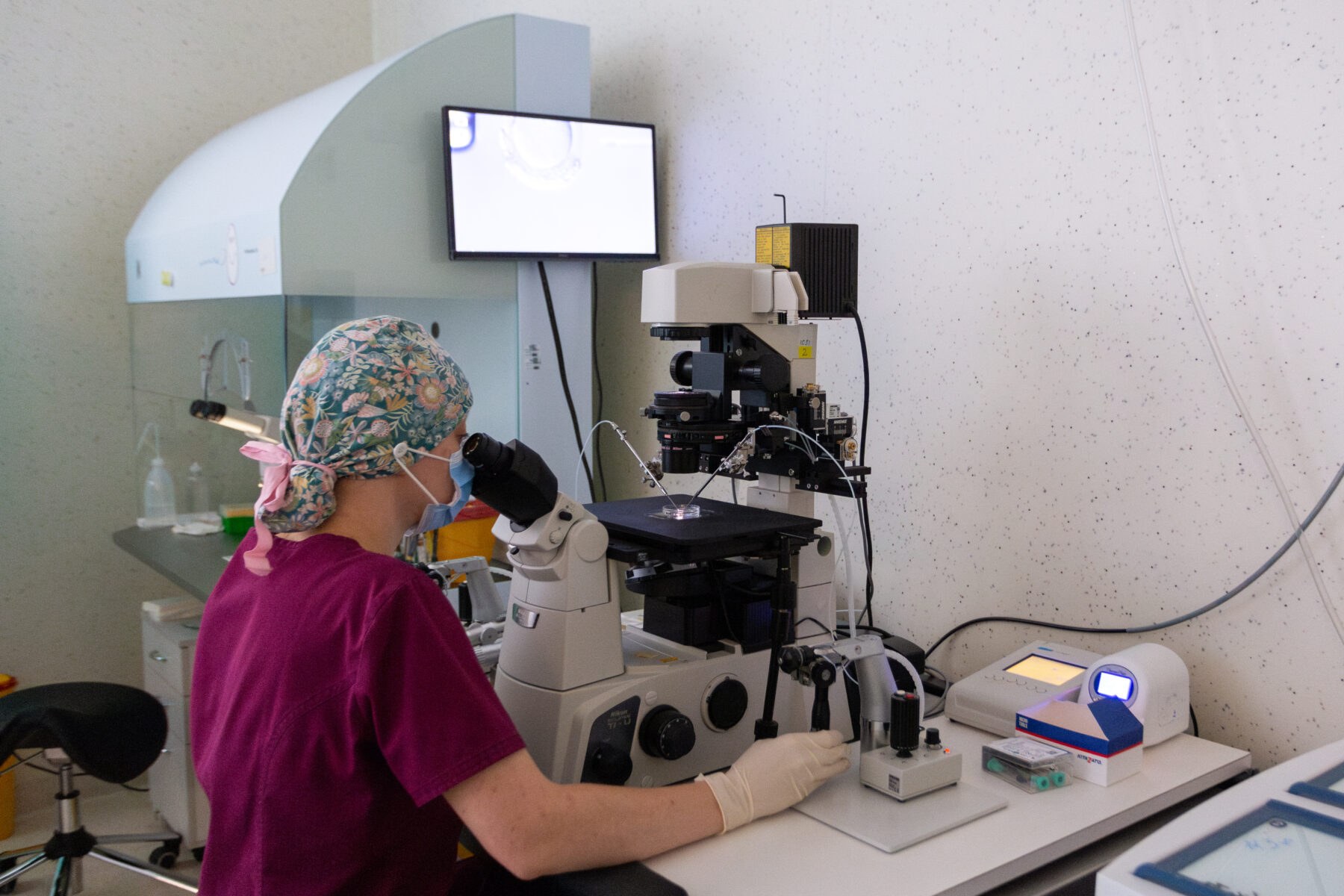Genetic testing at the Clinic EGV
Expert advice
Every family is at risk that the expected child may have a genetic disease. How can genetic testing help when performing medical fertilization, explains Dr. Zane Vītiņa, head of the Clinic EGV, gynaecologist and reproductive specialist.
Every person is a carrier of some disease, but most of us have no known family history of these diseases because carriers are usually healthy.
Chromosomal abnormalities increase with age, so preimplantation genetic testing of embryos is recommended for both expectant mothers after the age of 35, when the risk of chromosomal abnormalities begins to increase, and for women who have had several unsuccessful attempts at medical insemination. According to literature, women over the age of 35 have an increased risk of chromosomal abnormalities in their eggs. At the age of 40, only 15% of eggs are healthy. Genetic testing is also recommended if a chromosomal abnormality was present in a previous pregnancy or if a close relative have had one.
There are three types of preimplantation genetic testing (PGT).
- PGT-A or preimplantation (preimplantation) chromosomal aneuploidy (changed chromosome number) genetic testing. The benefit of performing it is a shorter time to achieving pregnancy. PGT -A, based on evidence, does not increase the number of live births. PGT-A should be considered in case of repeated implantation failure.
- PGT-SR or preimplantation (preimplantation) small chromosomal fragments (up to 40%) testing method. PGT-SR indications: balanced chromosomal aberrations have been detected in one or both partners.
- PGT-M or preimplantation monogenic (associated with changes in one gene) genetic testing of diseases, which is the determination of the origin of disease-causing pathogenic variants identified in DNA within the same family, which allows for the transfer of an embryo with a known genotype of the analysed gene into the uterus after medical fertilization. PGT-M testing can be performed in the case of previously diagnosed inherited genetic pathologies, if it is known that the presence of the pathology will significantly affect survival or quality of life, manifesting prenatally, during childbirth, in childhood or in an adult individual. PGT-M is recommended if a monogenic disease has been diagnosed in a family in a child, and/or, when conducting genetic testing, a high risk of having a sick offspring has been identified. It is also recommended if a known genetic pathology has been identified, the testing for which is technically possible. PGT-A analysis can also be included in the PGT-M cycle, which ensures that the child is healthy not only after the disease of the analysed gene, but also does not have any chromosomal pathology.
Safe genetic tests for pregnant women
In Latvia the latest generation of genetic tests for pregnant women are available – NIPT (Non-Invasive Prenatal Test) Panorama and Vistara screening tests. Genetic tests are harmless and safe screening for the expectant mother and the baby, which is performed by taking two tubes of the pregnant woman’s blood. The test analyses the free DNA of the placenta, which circulates in the pregnant woman’s blood. This test can be performed from the ninth full week of pregnancy.
Panorama – screening with high sensitivity and specificity for the most common chromosomal diseases. 21st (Down syndrome), 18th (Edward syndrome), 13th (Patau syndrome), X and Y chromosomes and triploid are analysed.
Compared to first trimester biochemical screening, NIPT has higher sensitivity and significantly lower false positive results, detecting the most common aneuploidies. This means less anxiety for expectant parents. Three tests of different scope are offered: Panorama; Panorama + 22q11.2 (Di George syndrome) chromosome deletion;
Panorama + 22q11.2 (Di George syndrome) + 1p36 deletion syndrome, 15q11-13 (Angelman and Prader-Willi syndrome) and 5p- (Cri-du-chat) syndrome.
NIPT Panorama can also be performed in the case of twin pregnancies and medical fertilization, including when donor eggs are used. Genetic testing is recommended if the expectant mother is over 35 years old, as well as for any expectant mother who wants to be more sure of the health of the expected baby. Screening is also recommended if the woman has previously had a pregnancy with trisomies, or if the results of biochemical tests or ultrasound examinations are inappropriate for the gestational age.
Vistara – prenatal screening for the most common monogenic diseases, analysing 30 genes. Screening includes Noonan syndrome, Achondroplasia, Osteogenesis imperfecta, Rett syndrome and 21 other monogenic diseases that may go undetected during pregnancy if additional genetic testing is not performed. The test can only be performed in the case of a singleton pregnancy.
- Choose a service
- Fill out the form
- Receive an individual response